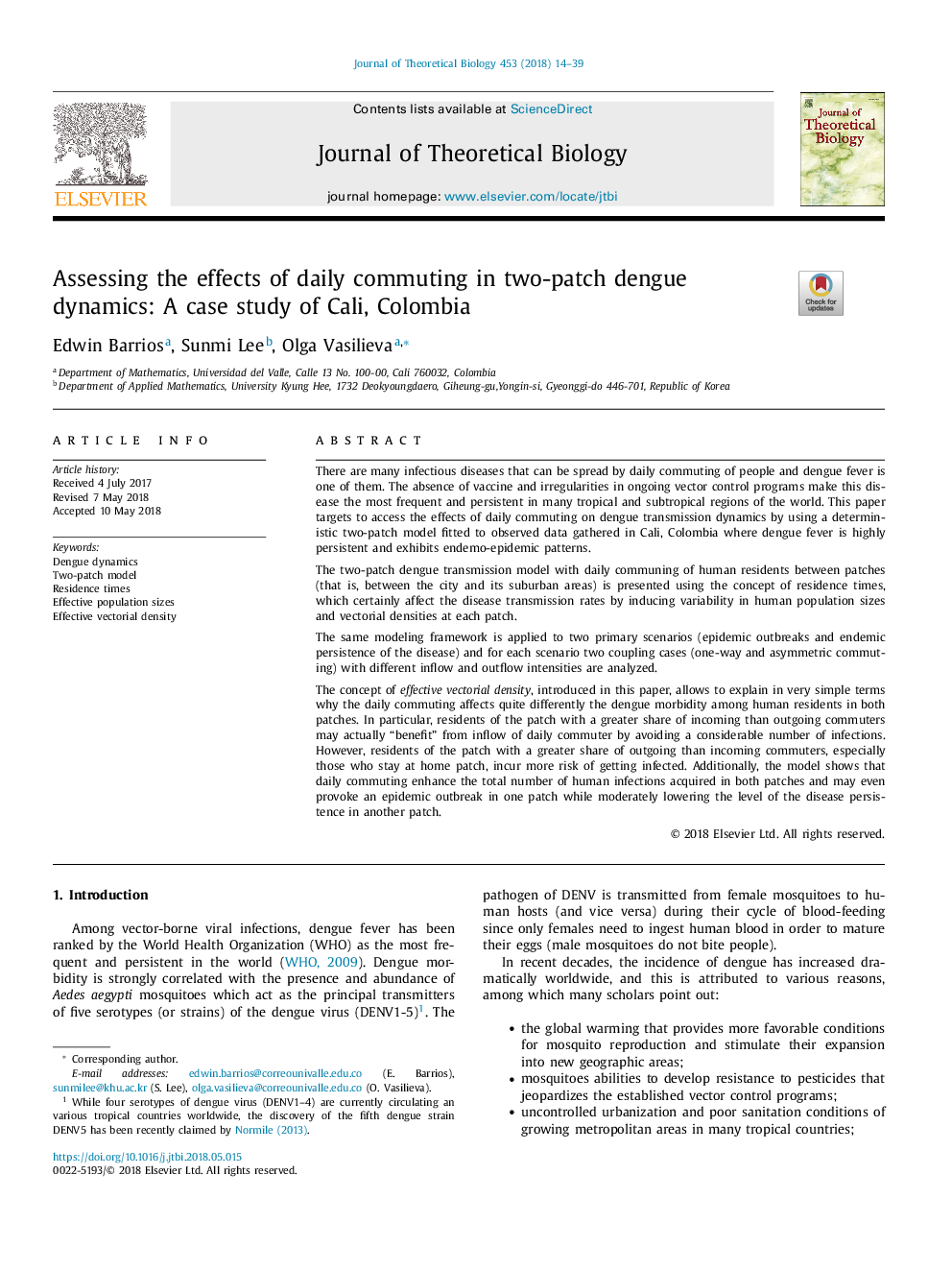| Article ID | Journal | Published Year | Pages | File Type |
|---|---|---|---|---|
| 8876600 | Journal of Theoretical Biology | 2018 | 26 Pages |
Abstract
The concept of effective vectorial density, introduced in this paper, allows to explain in very simple terms why the daily commuting affects quite differently the dengue morbidity among human residents in both patches. In particular, residents of the patch with a greater share of incoming than outgoing commuters may actually “benefit” from inflow of daily commuter by avoiding a considerable number of infections. However, residents of the patch with a greater share of outgoing than incoming commuters, especially those who stay at home patch, incur more risk of getting infected. Additionally, the model shows that daily commuting enhance the total number of human infections acquired in both patches and may even provoke an epidemic outbreak in one patch while moderately lowering the level of the disease persistence in another patch.
Keywords
Related Topics
Life Sciences
Agricultural and Biological Sciences
Agricultural and Biological Sciences (General)
Authors
Edwin Barrios, Sunmi Lee, Olga Vasilieva,
